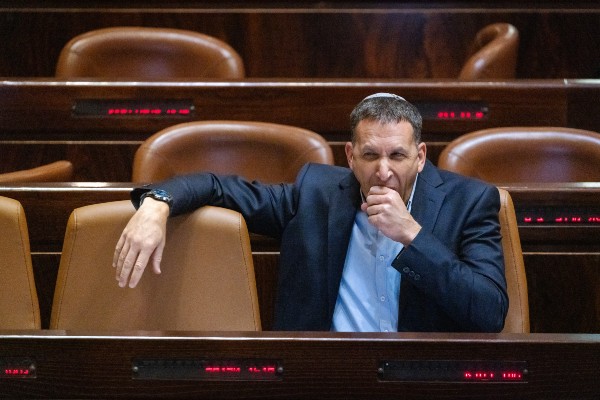2.5 million shekels were allotted for the advancement of women in religious institutions.
By Lauren Marcus, World Israel News
Israel’s Religious Affairs Ministry was allotted a 100 billion shekel ($31 million) boost in Israel’s new state budget, the first to pass in the country following three years of political deadlock.
The budget has passed the first hurdle of being approved by the Cabinet but still needs to pass three votes in the Knesset plenum. If passed, it will provide additional funding to the Religious Affairs Ministry’s budget on the heels of new potential reforms.
Religious Affairs Minister Matan Kahana said in a statement that the additional funds would be used to improve Rabbinate services, especially in rabbinical courts, and pave the way for a new, privatized Kashrut system.
“The budget reflects the importance and necessity of religious services, strengthens the status of the Chief Rabbinate, and will lead to improved religious services for Israeli citizens,” he said.
As part of Kahana’s much-touted reforms towards advancing women in positions of power in religious institutions, 2.5 million shekels will be spent specifically towards that goal.
1.5 million shekels will go to women’s Torah study institutions, and training and education programs for female halakachic counselors will be granted 1 million shekels.
Five million shekels will go towards updating technology systems in the Rabbinate, which the Ministry says will help streamline services for Jewish Israelis.
The National Center for Holy Places and the Rashbi Tomb will enjoy a 25 million shekel boost to their funding.
The Rashbi Tomb is located on Mount Meron, the site of the April 2021 crowd crush disaster which saw 45 people killed.
The funds will be used to revamp and overhaul the site, and enable previously devised safety recommendations to be implemented.
The Cave of the Patriarchs in Hebron will receive an additional 2.5 million shekels for infrastructure upgrades and better accessibility for disabled visitors.
Israel’s new state budget has seen a number of changes to the status quo, with the Finance Ministry officially raising the retirement age for women, the Health Ministry receiving extra funding to reach an annual budget of 2 billion shekels, and public transportation improvements in the Tel Aviv area.




